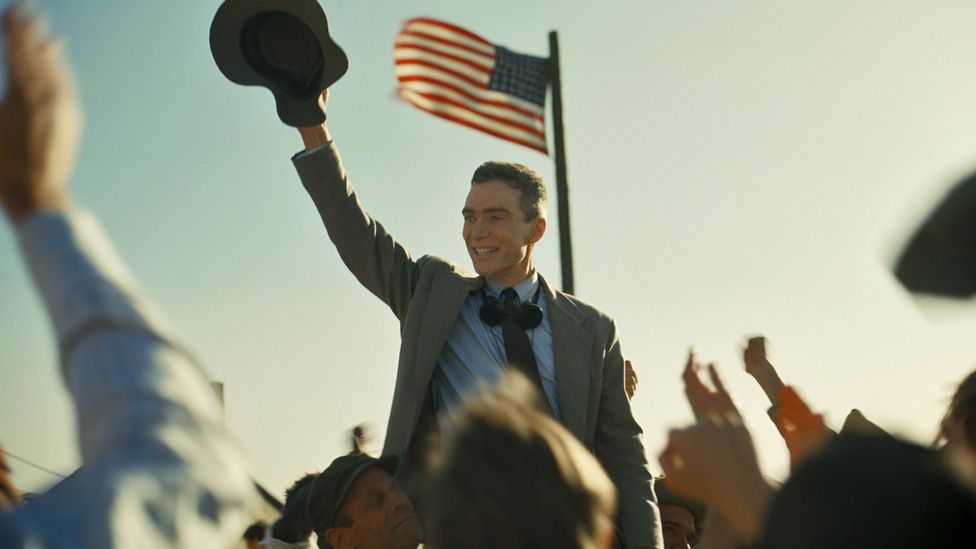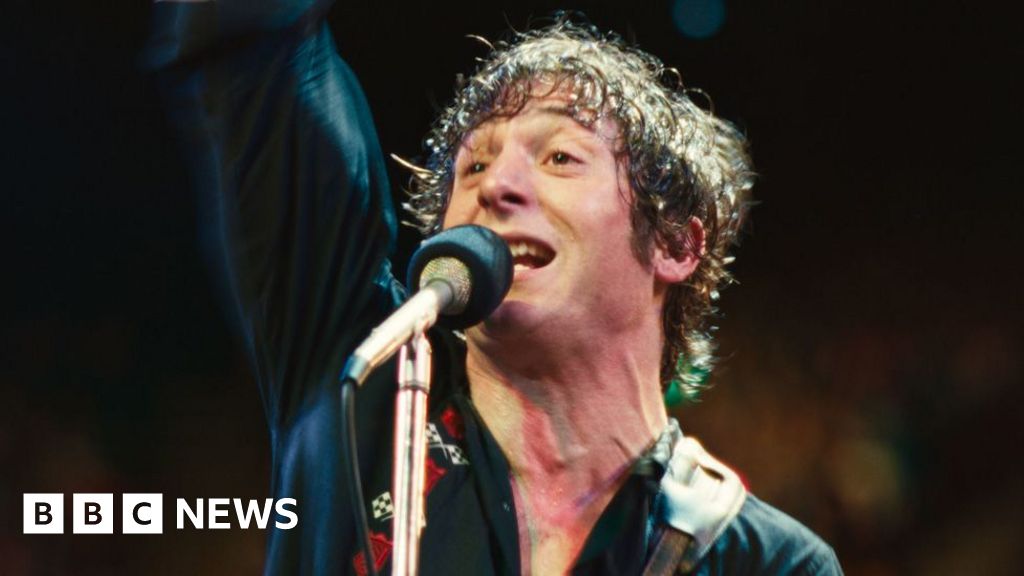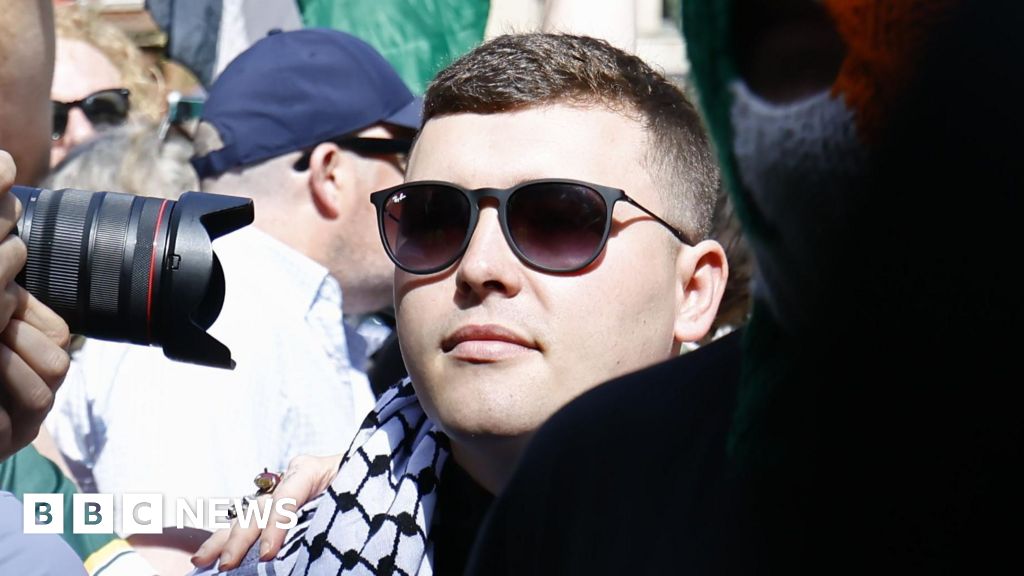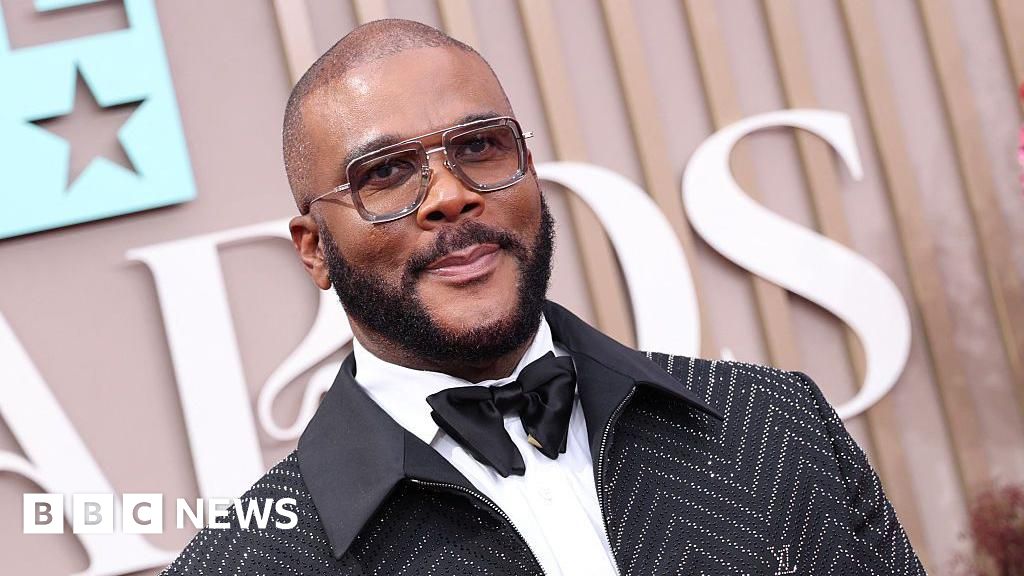ARTICLE AD BOX
 Image source, Universal Pictures
Image source, Universal Pictures
Cillian Murphy has said the film tackles the "most important moral dilemmas that we're still wrestling with"
By Steven McIntosh and Ian Youngs
Entertainment reporters
After making his name battling zombies in 28 Days Later and ruling a ruthless gang in Peaky Blinders, Cillian Murphy has now been recognised as a Hollywood heavyweight after winning his first Oscar for playing the father of the atomic bomb in Oppenheimer.
As an actor with a serious reputation and a serious talent, it was refreshing that the first thing to come out of Murphy's mouth when he went on stage to accept his best actor statuette was a joyful laugh.
Not someone usually given to public displays of emotion, it was clear how much winning an Oscar meant.
He may have been the frontrunner to win throughout awards season, but he was still "a little overwhelmed" to have the Oscar in his hand, he told the audience.
Declaring himself "a very proud Irishman" - the first Irish-born star to win best actor at the Oscars, in fact - he did then get serious.
Image source, EPA
Image caption,It was Murphy's first Oscar nomination and his first win
Clearly conscious of his winning role as J Robert Oppenheimer, the US theoretical physicist whose work gave humanity the potential for nuclear annihilation, he dedicated the award to "the peacemakers everywhere".
As ITV's Oscars night host Jonathan Ross said, it was "nice for him to use that moment to point out that we are living in a world which is forever changed by what that film's about".
Ross added: "That's one of the problems I had with the film, that it sort of lionised that man without really forcing the audience to look at what he'd done, even though he was going through that anguish."
Although the early part of the film focuses on the creation and development of the atomic bomb, the last hour sees Oppenheimer grappling with what he's done, as he comes to terms with the many lives lost as a result of his work.
"And if you think about the sort of dilemmas they were wrestling with at the time, they are the biggest, most profound, most paradoxical, most important kind of moral dilemmas that we're still wrestling with as a race and as the world."
More on the Oscars
Born in the suburbs of Cork in 1976, Murphy's interest in acting developed in secondary school after he took part in a drama module.
But he actually pursued music as a career first - Murphy played guitar alongside his brother Páidi in a string of rock bands in his late teens and early 20s.
He also studied law at University College Cork, but failed his first year exams because his heart had increasingly become set on acting. His professional debut came with a theatre performance in 1996.
Film roles followed in Danny Boyle's horror film 28 Days Later, Ken Loach's hard-hitting drama The Wind That Shakes The Barley and science fiction thriller Sunshine, another Boyle production.
"There isn't a genre or a medium the actor has shied away from over the years," wrote Variety's Jenelle Riley.
"And while some films might not always work as a whole, Murphy always shines. He's also a true actor's actor, one who understands every role is integral and is comfortable taking on supporting parts."
One particular role proved key to his career - with Murphy's appearance in 2005's Batman Begins marking his first collaboration with director Christopher Nolan.
Image source, Melinda Sue Gordon/Universal Pictures
Image caption,Murphy and Christopher Nolan on the set of Oppenheimer
Murphy had been asked to audition for the lead role in the first film of the Batman trilogy, and although he did not see himself as being the right fit, the actor jumped at the chance to work with Nolan. His instincts were right, and he was instead cast as Dr Crane, whose alter-ego is the villainous Scarecrow.
Over the following years, Murphy and Nolan reunited on Inception and Dunkirk, and the pair have now worked together on six films.
"It's a 20-year relationship," Murphy said. "We met when we were much younger and we were kind of starting out in the business. He was a lot further ahead than I was.
"I have a huge respect for him, I've always loved the types of films that he makes. There's all sorts of films that I go to the cinema to see. But we've developed over the years.
"Above all, the most important thing, I think, is trust. I really like being pushed as an actor, and he really, really pushes me, in the best way possible."
Although Murphy's film career was going from strength to strength, it was a BBC drama series about a Birmingham street gang in the early 20th Century that made him a household name.
Murphy's breakthrough came when he was cast as Tommy Shelby in BBC drama Peaky Blinders
The actor played Tommy Shelby in Peaky Blinders, and the show's popularity grew over six series as it was sold overseas and audiences caught up on streaming platforms.
As Peaky Blinders drewto a close, Murphy was cast in the role that would define his career so far.
Oppenheimer was released last July - on the same day as Barbie - and the resulting Barbenheimer phenomenon helped propel both to box office success.
Commercial success came with high critical acclaim for Oppenheimer, and it has now cleaned up at the Oscars, with trophies for Murphy and Nolan among seven wins.
The actor already has his next film in the pipeline. Small Things Like These, an intense drama in which he plays a taciturn coal merchant in 1985 Ireland - earned glowing reviews when it opened the Berlin Film Festival last month.
As Hollywood now knows, Murphy is an actor who brings gravitas to every performance - but can still allow himself a well-deserved laugh.
The Oscar-nominated Oppenheimer star sits down with the BBC's Culture Editor Katie Razzall.

 1 year ago
118
1 year ago
118








 English (US) ·
English (US) ·